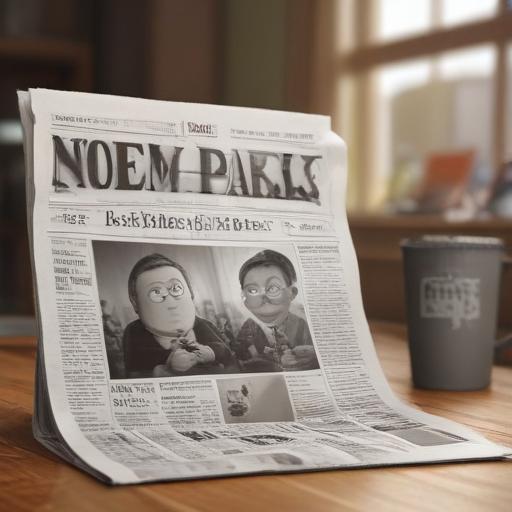Homeland Security Secretary Kristi Noem recently criticized the animated show South Park for its depiction of her character in a satirical context. Speaking on Glenn Beck’s radio program, Noem expressed her displeasure with the show’s portrayal, labeling it as “lazy” and “petty.” Although she admitted to not having seen the episode, she firmly stated, “It’s so lazy to constantly make fun of women for how they look.” She attributed this type of humor to “liberals and extremists,” suggesting that critics should focus on her professional actions rather than personal attacks.
In the episode, Noem was illustrated as an ICE agent, complete with exaggerated glamor, fostering a comedic and critical commentary on her reported actions and policies since joining the Trump Cabinet earlier this year. She has been noted for her participation in photo ops during deportation raids and her visits to controversial detention centers, which have been part of her controversial political image.
The recent season of South Park, which began just weeks ago, has targeted various aspects of the current Trump administration, reflecting its ongoing critique of political figures including President Trump and Vice President JD Vance. Vance humorously reacted to his own portrayal on the show by expressing that he felt he had “finally made it.”
Interestingly, the Department of Homeland Security had previously utilized an image from South Park in its recruitment campaign, prompting the show’s official account to quip about its relevance. Meanwhile, a DHS spokesperson noted that the focus of their recruitment efforts is to attract individuals willing to participate in significant law enforcement roles.
Despite any backlash, the show’s latest season premiere achieved the highest ratings for South Park since 1999, signifying sustained interest in its commentary on current affairs.
Noem’s comments reflect a broader conversation about the intersection of politics, media representation, and public perception, especially concerning how female figures in power are portrayed. While satirical content often invites critique, it simultaneously stimulates discussion about the policies and practices that inspire such representations.
Overall, the dynamics between popular media and political figures continue to be a source of examination, reflecting the unique ways in which society engages with issues of governance and representation.
